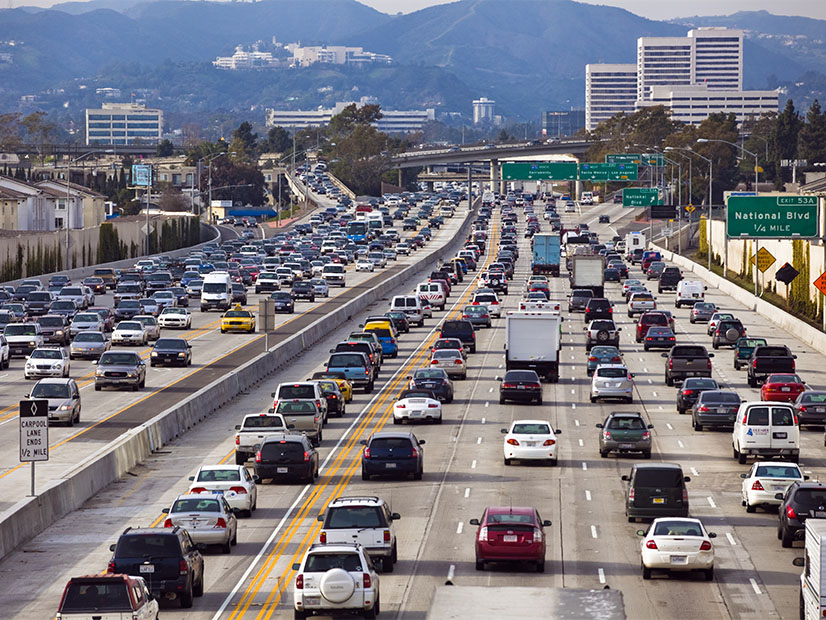
The first potentially decisive motions are due Monday in a case that pits 17 states and their allies against the U.S. Environmental Protection Agency over its waiver allowing California to enact stricter tailpipe emissions standards than the federal government.
California and 19 other states back the EPA’s decision, along with environmental groups, automakers and some utilities.
Ohio Attorney General Dave Yost filed the case, Ohio v. EPA, in the D.C. Circuit Court of Appeals in May, two months after the EPA rescinded a Trump administration decision that had revoked California’s decades-old Clean Air Act waiver. EPA also reinstated California’s requirement that all new passenger vehicles sold in-state must be emissions free by 2035. (See EPA Restores California Tailpipe Standards.)
Yost and the attorneys general of the 16 other states asked the court to decide if EPA’s action was unconstitutional, “arbitrary, capricious [and] an abuse of discretion” because the agency allowed stronger state regulations to supersede federal fuel economy standards.
They contended that the D.C. Circuit was the proper venue for the matter because the court, which normally hears cases on appeal, has primary authority to review decisions the EPA determines have “nationwide scope or effect.”
The petition for review was signed by Yost and the attorney generals of Alabama, Arkansas, Georgia, Indiana, Kansas, Kentucky, Louisiana, Mississippi, Missouri, Montana, Nebraska, Oklahoma, South Carolina, Texas, Utah, and West Virginia.
Asked to discuss the case with RTO Insider, Yost’s office declined to comment.
California Attorney General Rob Bonta quickly moved to intervene, joined by his counterparts in Colorado, Connecticut, Delaware, Hawaii, Illinois, Maine, Maryland, Massachusetts, Minnesota, Nevada, New Jersey, New Mexico, New York, North Carolina, Oregon, Pennsylvania, Rhode Island, Vermont and Washington. New York City, Los Angeles and Washington, D.C., also weighed in on the side of California and the EPA.
Congress has long allowed other states to adopt the more stringent vehicle emissions standards for which California was granted a Clean Air Act preemption waiver starting in the 1970s. (See NM Adopts Calif. Advanced Clean Cars Rules.)
“This regulatory regime has operated as Congress intended for more than half a century,” Bonta’s office wrote. “California has expanded its pioneering efforts to reduce new motor vehicle pollution, pursuant to preemption waivers granted by EPA. And EPA has continued to draw heavily on the California experience to fashion and to improve the national efforts at emissions control, thereby reducing vehicular air pollution nationwide.”
Environmental groups such as the Sierra Club, Natural Resources Defense Council and the Environmental Defense Fund asked the court for permission to intervene in support of the EPA and California. Automakers including Ford, Volkswagen and BMW also intervened.
“The automobile manufacturers … support the waiver decision and California’s ability to regulate greenhouse gas emissions from new light-duty motor vehicles,” their lawyers wrote. “Ford, Volkswagen, BMW Group, Honda, and Volvo Cars are committed to reducing greenhouse gas emissions in their own fleets.”
“Ford has committed to invest more than $50 billion by 2026 to put electric vehicles on the road across the world,” they said. “Similarly, the Volkswagen Group is in the midst of deploying a $40 billion electrification development plan to accelerate the timeline to introduce an increasingly broad range of electrified vehicles globally.”
Honda has said 100% of its vehicles worldwide will be electrified by 2040, with plans to launch more than 30 different electric vehicle models by 2030, the motion noted.
Advanced Energy Economy (AEE), Calpine Corp., National Grid USA, New York Power Authority and the Power Companies Climate Coalition filed a joint brief on June 14.
“California’s long-standing right to establish more stringent auto emissions standards is foundational to achieving the Clean Air Act’s goals of protecting public health and forcing the development of low and zero-emissions technologies like electric vehicles,” AEE General Counsel Jeff Dennis said in a news release. “AEE is intervening today to ensure that our business voice is heard in this case.”
On Ohio’s side, the American Fuel & Petrochemical Manufacturers, Domestic Energy Producers Alliance, Energy Marketers of America and the National Association of Convenience Stores argued in a court filing that the EPA’s action “financially harms [their] members … by reducing demand for products produced or sold by petitioners’ members.”
The court consolidated Ohio’s petition with related actions by parties representing ethanol producers such as the Clean Fuels Development Coalition, ethanol processor ICM Inc., and the Kansas Corn Growers Association.
The DC Circuit has set June 27 as the deadline for filing motions to dismiss the case or for summary judgement. None of the parties have said if they intend to file such motions, which are common but seldom successful in similar litigation.
John Funk contributed to this story.


